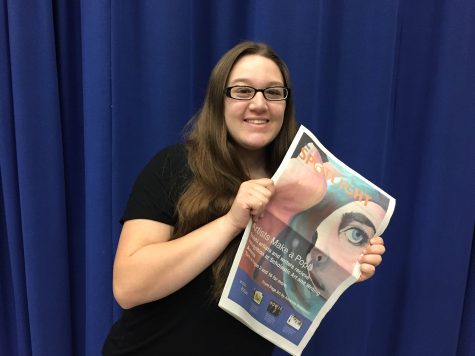A Guide to Conquering Writer’s Block
Throughout the school year, projects and assignments are thrown at us left and right, but what happens when you are stuck on what to write?
Writer’s block for some people can simply be procrastination. For others, writer’s block is a lack of inspiration and ideas. Why exactly do people get writer’s block?
“The very human fear of trying something and failing [contributes to writer’s block],” DeSales University English Professor Stephen Myers said. “If you’re an artist of any kind, you have to be willing to fail a lot.”
Once a person understands that failing is a part of learning, they can start to find ways that work for them to help them overcome their writer’s block.
“I get writer’s block almost every time I write something,” sophomore Sierra Gordon said. “I usually walk away and then come back later for a fresh start.”
When writing something long and strenuous, taking breaks can be very helpful. If you come back to your project and are still having trouble, seek ideas by talking with others, whether that be friends, family, or teachers.
“Make sure you talk to the people around you about what’s on their mind because you never know what is going to be the seed for your next idea,” Spanish teacher Mrs. Joan Imms-Geiser said.
“Writer’s block makes students unable to organize their thoughts,” special education teacher Mr. Anthony Italiani said, “so I kick them off with trying to brainstorm ideas with mind mapping and graphic organizer techniques.”
Another solution to try is putting your thoughts onto index cards and rearranging them to see which ideas go together. Freewriting can also be a useful tool. Give yourself a certain time limit and write down whatever comes to mind until that period of time is over.
“For some people, keeping a journal helps,” Professor Myers said. “It doesn’t help me personally, but I certainly know writers who swear by journaling as a way to keep the words flowing.”
If none of these solutions help, try reading. Read some of your favorite authors or poets. Annotate or talk to the text. Underline or highlight good writing styles. Circle ideas that interest you.
“I can’t emphasize it enough: read good fiction writers and/or poets who are writing today,” Professor Myers said. “I always ask students new to my Intro to Poetry class at DeSales who their favorite poets are. They tell me Edgar Allan Poe, Langston Hughes, Shel Silverstein, and Walt Whitman. They are all great poets, but they’ve been dead since forever! There are many, many great poets writing brilliant poetry today. Of course it’s important to read the great old poets–Dickinson, Keats, Chaucer, the Beowulf poet–, etc., but, find out who the great living writers are. Read their work. Watch them on YouTube. Same for fiction writers. A person who thinks she can be a good writer without reading good writing that’s actually being written today is kidding herself big time.”
There are many different solutions to help inspire ideas to get you started. Sometimes none of these ideas will work, but other times all of them will help in some sort of way.
Make sure to find something that works for you personally. Don’t force yourself to use a solution that works really well for one person because it may not have the same effect on you.

Sophomore Aries Baringer is a first-year staff member for The Spotlight. She is also involved in the Key Club. Her hobbies include listening to music,...

